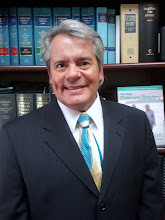In past blog entries we have discussed how estate planning documents such as trusts, durable financial powers of attorney and advance health care directives provide a plan in the event of future incapacity. At the Casiano Law Firm, we also focus on planning involving Medicare, Medi-Cal, Social Security, and supplemental and long-term care insurance policy issues as part of our comprehensive elder law representation. This month’s blog will focus on an overview of Medi-Cal planning.
What is Medi-Cal?
Medi-Cal is California’s version of the federal Medicaid program that provides additional health insurance for qualified individuals who are at least 65 years of age, blind, or disabled. Medi-Cal is often used to assist residents in skilled nursing facilities who have exhausted their Medicare skilled nursing home coverage. Medicare covers the first 20 days of skilled nursing home coverage, then requires a co-payment of $137.50 per day for days 21 through 100, conditioned on the patient showing improvement in his or her condition. After 100 days, the patient is converted to “private pay” status where the patient must pay the monthly expense, which averages about $6,300 per month. In contrast, Medi-Cal will continue to pay for skilled nursing home expenses indefinitely, regardless of whether or not the patient shows improvement.
Important Factors to Consider in Medi-Cal Planning
Medi-Cal planning requires a careful and thorough review of your assets, income, and estate planning documents to develop a plan tailored to your unique situation. A comprehensive Medi-Cal plan should consider three important factors:
- Eligibility planning for Medi-Cal benefits;
- Income planning to reduce or eliminate the monthly “share of cost” to be paid by the Medi-Cal beneficiary; and
- Estate recovery planning to reduce or eliminate the recovery of the amount of benefits paid out from the beneficiary’s estate.
Don’t Transfer or Give Away Assets
We are frequently asked by clients if they should simply give away their assets. Do not give away any assets or transfer title to your real property without first consulting with an experienced elder law attorney. Medi-Cal considers certain assets to be exempt for the purpose of determining eligibility, and a special petition or administrative hearing may be used to increase the standard eligibility limit, reduce or eliminate the co-payment, or eliminate Medi-Cal’s ability to recover for benefits paid out under some circumstances. Certain property transfers can have significant tax consequences, and improper transfers can result in the disqualification of a Medi-Cal beneficiary and a significant period of ineligibility for Medi-Cal benefits.
Consult an Experienced San Diego Elder Law Attorney
Medi-Cal regulations are frequently changing and this area of planning requires the assistance of experienced counsel familiar with both elder law and estate planning matters. If you have questions regarding Medi-Cal planning, contact the Casiano Law Firm for a free telephone consultation with an experienced San Diego elder law and estate planning attorney.


No comments:
Post a Comment